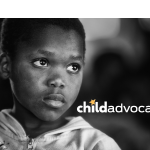

Early Childhood Trauma
Posted on March 28th, 2018
In a 60 Minutes segment, which aired Sunday, March 11, Oprah Winfrey explored the long-term adverse effects of early childhood trauma with a leading authority in field of early childhood development. Dr. Bruce Perry, psychiatrist and neuroscientist, discussed the complex issues and the technique of Trauma Informed Care to treat the maltreated and traumatized child.
Dr. Perry stated, “If you have development trauma, the truth is you’re going to be at risk for almost any kind of physical health, mental health and social health problem that you can think of.” Most interesting, and sad, is that research in neuroscience shows that “The very same sensitivity that makes you able to learn language ‘just like that!’ as a little infant, makes you highly vulnerable to chaos, threat, inconsistency, unpredictability and violence. So, children are much more sensitive to developmental trauma than adults.”
A child raised in a healthy, nurturing and stable environment is more likely to have a well-wired brain. Unfortunately, the reverse is also true. A child raised in a chaotic home with uncertainty and violence, will have a brain that is wired differently. Typically, these children are more vulnerable for a lifetime. In fact, the CDC reports that these individuals are five times as likely to be depressed and have live spans shortened by 20 years.
Dr. Bruce Perry shaped “trauma informed care.” Trauma informed care focuses on “what happened.” When mental health professionals focus on “What happened to you?” vs. “What’s wrong with you?” before trying to fix it, it makes the client feel safe. Under this type of care, clients report, “I felt understood. I felt seen and heard.”
Dr. Perry points out that we cannot break the cycle without trauma informed care. Perry says that the difference between a “bad childhood” and a “traumatic childhood” is that somebody helped – that is what makes the difference.
About Child Advocates: Child Advocates, Inc. is a nonprofit organization in Indianapolis that mobilizes Court Appointed Special Advocate (CASA) volunteers to break the cycle of child abuse. We speak up for abused children who are lost in the system and guide them into safe environments where they can thrive. Volunteers serve children involved in the juvenile court system once appointed to a child’s case by a juvenile court judge. This means that our volunteers have the legal status, giving them the power to affect real change in the life of a child.